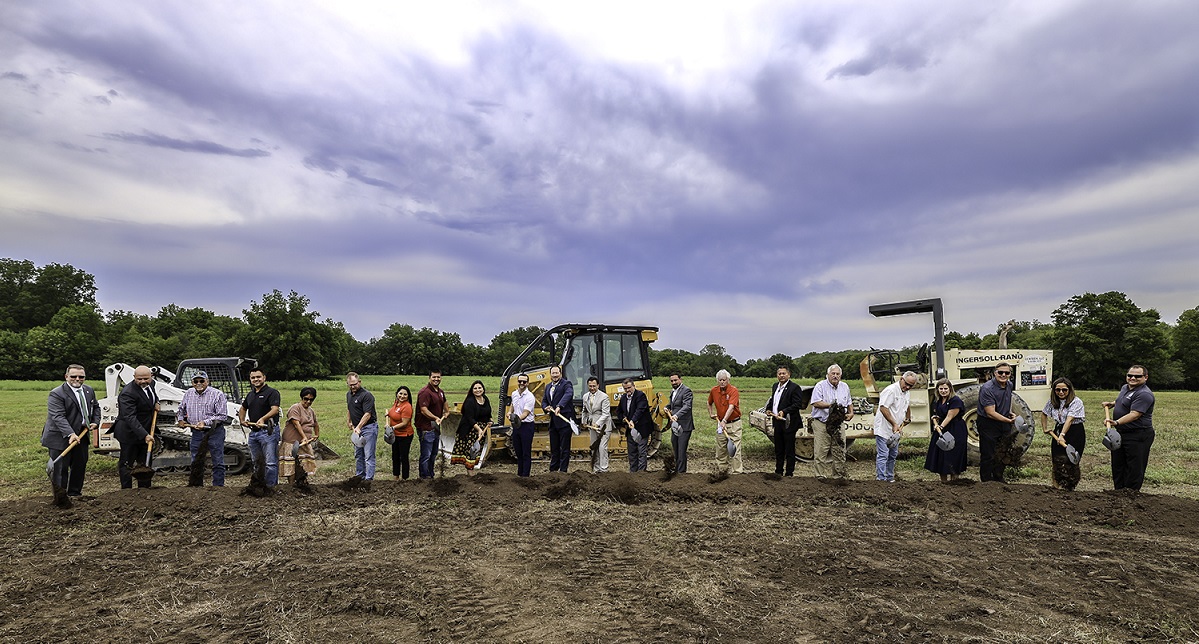
- Details
- By Chuck Hoskin Jr
Guest Opinion. Opioids and other addictive substances have taken a heavy toll on Cherokee families and communities. The crisis is made even more difficult when we must send citizens far from the Cherokee Nation Reservation to receive desperately needed care. That’s about to change.
Cherokee Nation recently broke ground on a new alcohol and drug treatment center in Tahlequah. With this project, we declare that our tribal nation is taking direct action to heal our people and keep families whole.
The 19,000-square-foot facility will sit on a 40-acre campus and eventually house about 80 beds. It is a testament to the resilience and determination of the Cherokee people, who have faced generations of hardship and emerged even stronger and more united.
This home for wellness is a vision First Lady January Hoskin and I have had since day one in office. It’s a powerful symbol of our commitment as a government to the well-being of every Cherokee citizen. It will empower individuals to overcome substance use disorders and create a healthier tomorrow.
That’s because, here in our own capital city, citizens can find more than just treatment. They will discover a pathway to reclaim their life within strong Cherokee communities. We can all take comfort knowing that Cherokees are healing Cherokees, right here on our own land.

This new center is slated to open in 2025, offering comprehensive and culturally appropriate care. To prepare for this expansion of our health services, we visited several treatment facilities operated by other tribes to see what is working in those communities. Our travels included a very impactful visit by First Lady and I to Choctaw Nation.
Funds for the construction of this facility are thanks to the Cherokee Nation’s unwavering pursuit of justice against the very industries that have profited from the suffering of our people. The opioid epidemic was not an accident. It was a calculated act of greed by pharmaceutical companies and distributors who knew the risks of their drugs and chose to flood the Cherokee Nation Reservation with them anyway. These irresponsible corporations have caused massive amounts of pain, shattered families and ruined lives.
But we fought back, and our Attorney General’s Office won legal battles to secure multimillion dollar settlements that hold these companies accountable. Cherokee Nation was the first to challenge these corporations in court, and every penny we won from these lawsuits will now be used to build this center. The ill-gained profits from the opioid epidemic will be transformed into a powerful tool for recovery.
The new center will offer group and individual counseling, peer support services, and care management, all grounded in the Cherokee cultural values and practices that have sustained us for centuries. By incorporating traditional activities into treatment, we are reclaiming Cherokee identity and reconnecting to the caring and communal responsibility that have always been the heart of our tribe.
Deputy Chief Bryan Warner and I know that healing is a family effort. This new center will ensure that family wellness remains central to recovery. We will prioritize keeping families together during treatment and ensure that loved ones remain involved on the journey. Our Cherokee goodness and strength come from our deep bonds with extended family, and that is key to long-term recovery and health.
Today, we are taking a bold step toward addressing one of the most pressing challenges for our people. By investing in this state-of-the-art treatment center, the Cherokee Nation is not just responding to the current addiction crisis but becoming more resilient for generations to come.
Chuck Hoskin, Jr. is the principal chief of the Cherokee Nation.
More Stories Like This
Tribes Do Not Need a Greenlight to Build Renewable EnergyLaw Should Not Get in the Way When "Manifest-ing Destiny"
Celebrating 35 Years of Gaming Success
My Tribe’s ICE Contract Betrayed Our Values
Extending the Affordable Care Act Is a Moral Imperative for Indian Country
Help us defend tribal sovereignty.
At Native News Online, our mission is rooted in telling the stories that strengthen sovereignty and uplift Indigenous voices — not just at year’s end, but every single day.
Because of your generosity last year, we were able to keep our reporters on the ground in tribal communities, at national gatherings and in the halls of Congress — covering the issues that matter most to Indian Country: sovereignty, culture, education, health and economic opportunity.
That support sustained us through a tough year in 2025. Now, as we look to the year ahead, we need your help right now to ensure warrior journalism remains strong — reporting that defends tribal sovereignty, amplifies Native truth, and holds power accountable.
 The stakes couldn't be higher. Your support keeps Native voices heard, Native stories told and Native sovereignty defended.
The stakes couldn't be higher. Your support keeps Native voices heard, Native stories told and Native sovereignty defended.
Stand with Warrior Journalism today.
Levi Rickert (Potawatomi), Editor & Publisher

